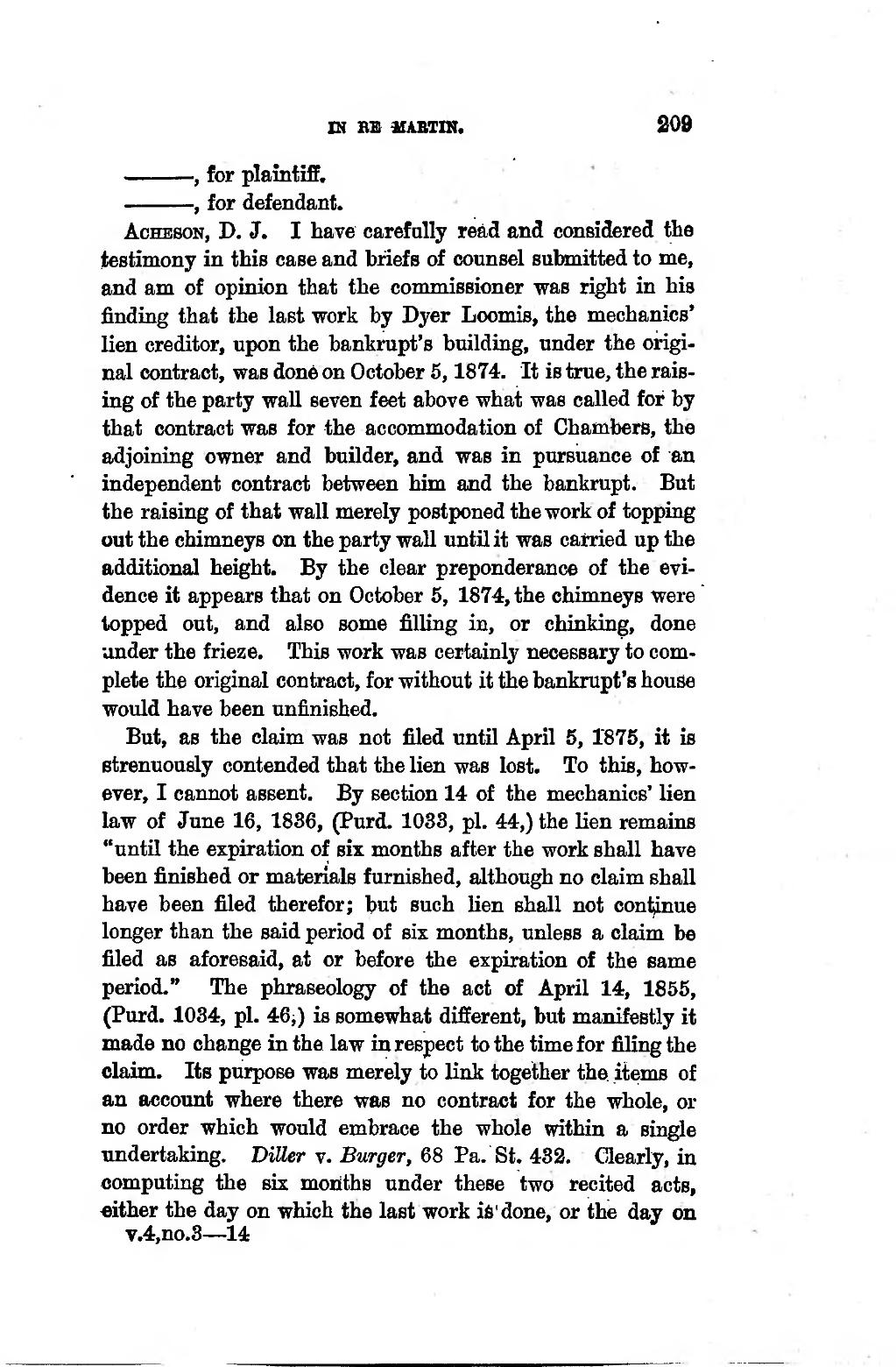m BB 3IABTIN. 209 ���-, for plaintiff. -, for defendant. ���AcHESON, D. J. I have carefally reàd and consîdered the testimony in this case and briefs of counsel submitted to me, and am of opinion that the commissioner was right in his finding that the last work by Dyer Loomis, the mechanics' lien crediter, upon the bankrupt's building, under the origi- nal contract, was done on October 5, 1874, It is true, the rais- ing of the party wall seven feet above what was called for by that contract was for the accommodation of Chambers, the adjoining owner and builder, and was in pursuance of an independent contract between him and the bankrupt. But the raising of that wall merely postponed the work of topping out the chimneys on the party wall until it was carried up the additional height. By the clear preponderance of the evi- dence it appears that on October 5, 1874, the chimneys were topped out, and also some filling in, or chinking, done under the frieze. This work was certainly necessary to com- plete the original contract, for without it the bankrupt's house would bave been unfinished. �But, as the claim was not filed until April 5, 1875, it is strenuously contended that the lien was lost. To this, how- ever, I cannot assent. By section 14 of the mechanics' lien law of June 16, 1836, (Purd. 1033, pi. 44,) the lien remains "until the expiration of six months af ter the work shall have been finished or materials furnished, although no claim shall have been filed therefor; but such lien shall not continue longer than the said period of six months, unless a claim be filed as aforesaid, at or before the expiration of the eame period." The phraseology of the act of April 14, 1855, (Purd. 1034, pi. 46i) is somewhat different, but manifestly it made no change in the law in respect to the time for filing the claim. Its purpose was merely to link together the items of an account where there was no contract for the whole, or no order whioh would embrace the whole vrithin a single undertaking. Diller v. Burger, 68 Pa. St. 432. Clearly, in Computing the six months under these two recited acts, «ither the day on which the last work iô' done, or the day on �v.4,no.3 — 14 ����
